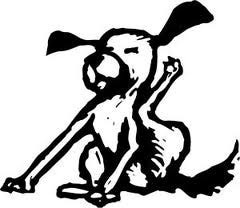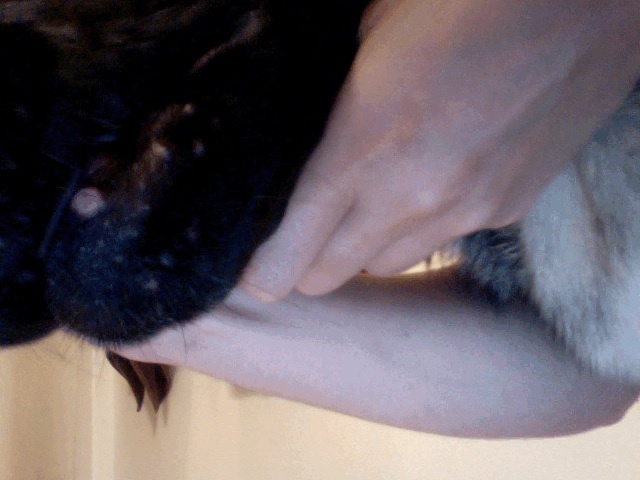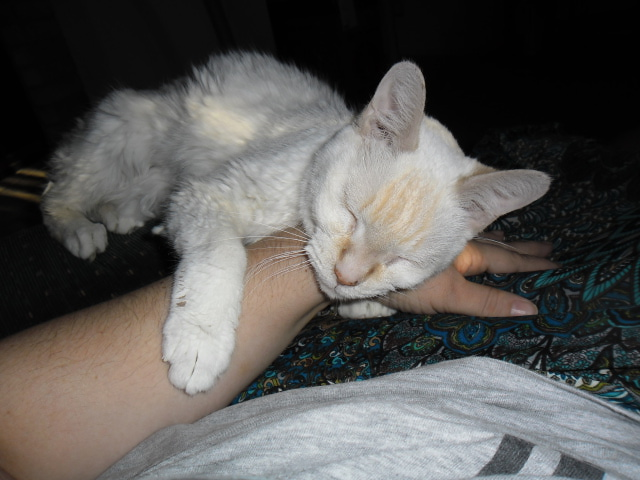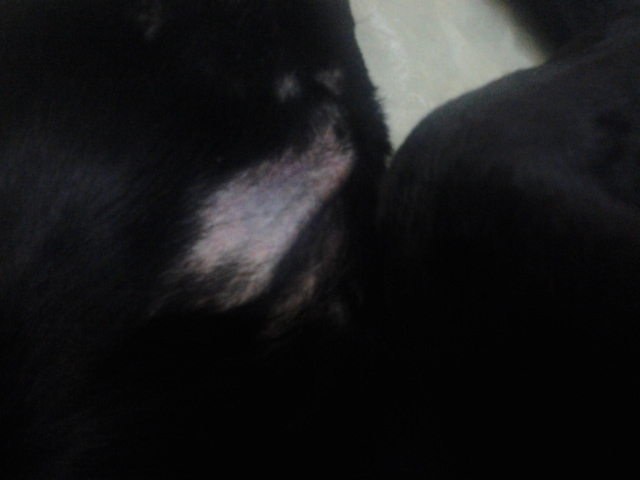QuestionMy 3-year old German Shepherd, Rocky, is neutered, up to date on all shots, & on monthly Frontline & heartworm medication. When he was a puppy, he was thin, but the vet attributed it to hookworms. He was treated and all stools for the past 2+ years have come back negative for any worms. Rocky weighs only 68 lbs. His spine, hindquarters, and ribs are easily visible, moreso after a shed. When we bought him, he was on a dry dog food that we kept consistent, but after a year, he turned away from it, his stools became diarrhea, and he started appearing thin. At the recommendation of my vet, I started feeding canned food just to get him to eat. I've been feeding canned food since (2 cans/day, plus occasional 'good boy' biscuits) and have not had any problems with his stools since. Rocky still does not put on weight. I even tried supplementing his canned food by mixing in plain white rice for some added calories, but after a month, he's still thin. He's inside at night and outside during the day. When he's outside, he paces around the same path in the yard, as I understand is characteristic of his breed. My vet's best explanation about his weight is that Rocky has a high metabolism and that will eventually slow down as he ages. Rocky is otherwise a normal, active dog, loves to run & play, listens very well, and, other than his weight, is very healthy - so far has no displaysia and all bloodwork comes back perfect. My vet keeps suggesting that I switch to a very expensive dry diet, but I dont' want to put Rocky back through the diarrhea cycle, and I refuse to spend a fortune on dry food that he'll turn away from. Any suggestions on feeding for weight gain?
AnswerI would be concerned about pancreatitic insufficiency (EPI), which is very common in Sheps. Routine blood testing will not pick it up...a TLI must be sent out to the lab.
Nutrition is the cornerstone to health! You should feed a high quality diet that has MEAT as the first ingredient, is natural, has no preservatives, food colors or by-products, and is easy to digest. Avoid corn and soy due to his digestive issues. I would suggest looking into Prairie by Nature's Variety, Nutro Natural, Flint River Ranch, Verus, Precise, Eagle Pack....these foods are high quality and do not have cheap fillers, therefore, you can feed less and your pet will have better health. Cheap foods are loaded with cheap ingredients and cheap fillers, which means your dog needs to eat more to get the nutrients he needs and also will have a larger stool volume because more junk in=more junk out. When switching diets, you should GRADUALLY change to the new food over 1-2 weeks time by mixing a little new with some old, and then every day increase the amount of new food and decrease the amount of the old. Plus, spend a little more on food and have a healthier dog, which also means less visits to the vet!
Another suggestion is to add digestive enzymes to his food....I prefer Dancing Paws Shake'N Zyme, however, you can use something less expensive like Prozyme.
Below is a recipe for SATIN BALLS that you can make to supplement his diet to help with weight gain...
INGREDIENTS:
10 pounds of hamburger meat
1 large box of Total cereal
1 large box of oatmeal (uncooked)
1 jar of wheat germ
10 eggs
1-1/4 c. vegetable oil
1-1/4 c. unflavoured molasses
10 small packages of unflavored gelatin
pinch of salt
DIRECTIONS:
Mix all ingredients together well, much like a meatloaf and then roll into meatballs. May feed raw. Freeze and thaw out a few meatballs as needed.

 bulldog puppy with mange ; itchy bulldog ;
QuestionHi I hope you can help my bulldog with mange. &
bulldog puppy with mange ; itchy bulldog ;
QuestionHi I hope you can help my bulldog with mange. &
 German Shepard has red sore on lip
Question
sore on charlies lip
The other day I no
German Shepard has red sore on lip
Question
sore on charlies lip
The other day I no
 pancreatitis/lymphoma
Question
Romeo
Hello. I have a 9 year old Siames
pancreatitis/lymphoma
Question
Romeo
Hello. I have a 9 year old Siames
 My 5 month old Labrador blad spot
QuestionBald spot on neck
Bald spot on leg
My 5 month old Labrador blad spot
QuestionBald spot on neck
Bald spot on leg
 Vomiting and swollen neck glands
Question
Vomit
Hi
We have a 2 year old male, neutered M
Vomiting and swollen neck glands
Question
Vomit
Hi
We have a 2 year old male, neutered M